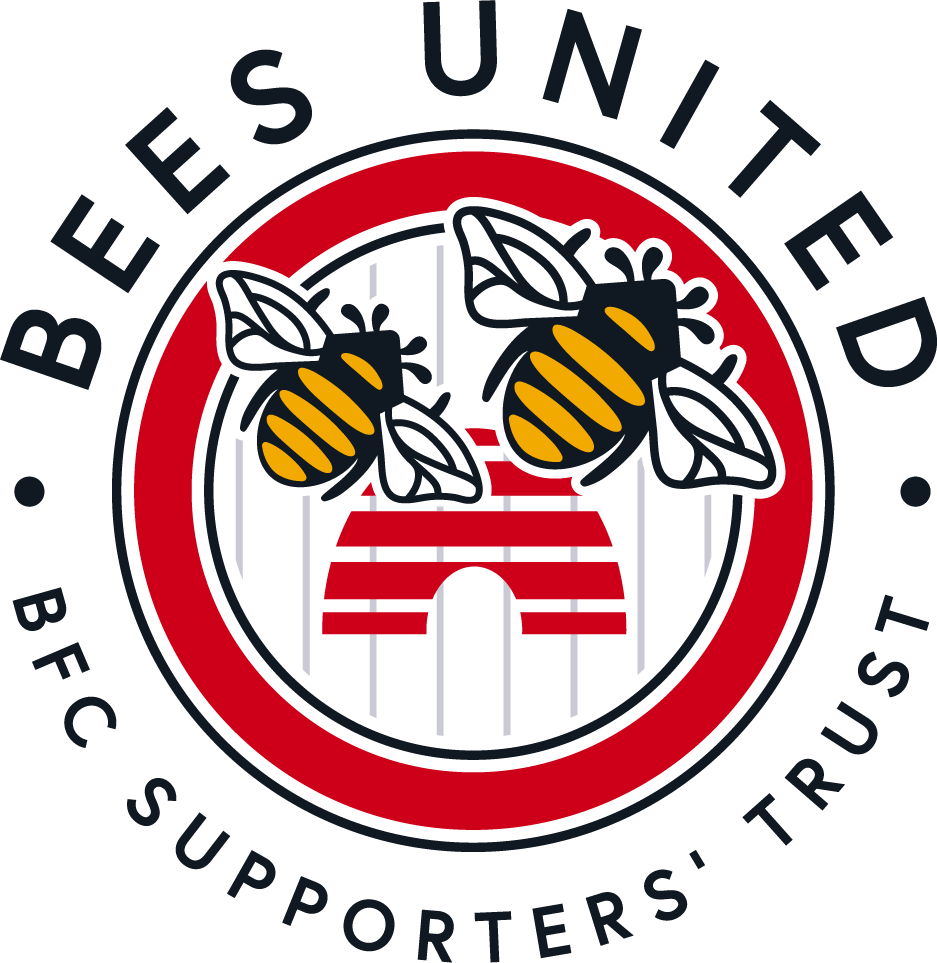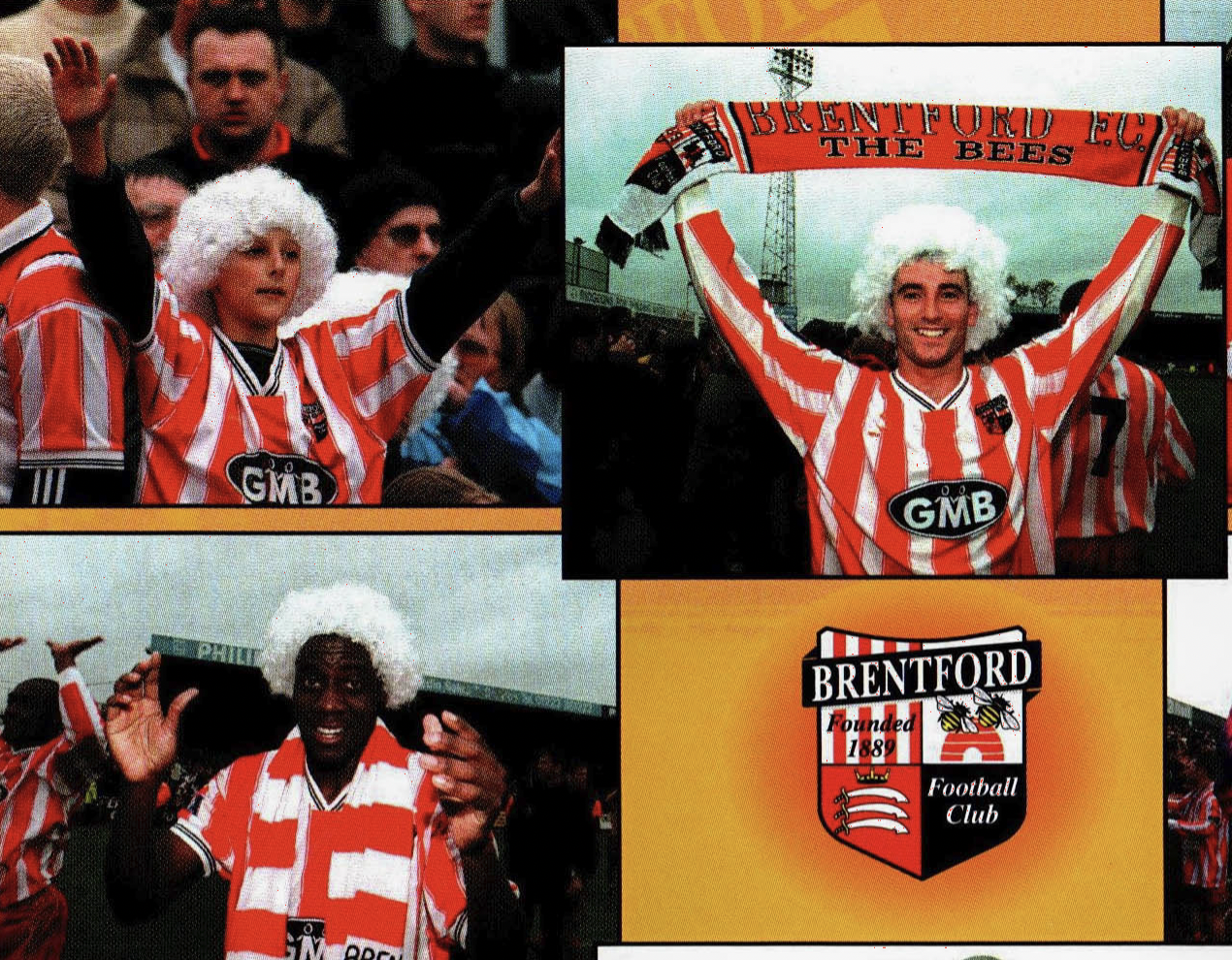“Whatever the fans want you to do, you should do the opposite,”
When Brentford Chairman Ron Noades spoke of his torment at being forced out of the club by abusive fans, there were few tears in my house.
“I’ve had enough. I’ll be leaving the board and not getting involved at all. The abuse I’ve received from one section of supporters has been very upsetting for my wife and I,” complained the white-haired mercenary.
My heart bled. That parting shot 20 years ago blamed “foul mouthed verbal insults” for his decision to walk away four short years after he’d been feted as a hero for leading the club out of the bottom tier.
In the build-up to that that unforgettable title-clinching day in Cambridge, he won the hearts of Bees fans by spending freely on the likes of Hermann Hreidarsson as part of his mission to prove that he could manage a bit too and many fans and players alike sported white wigs in homage and appreciation of their then-popular Chairman/Manager/Owner.
But it was all a charade bult on fool’s gold. The public face of Noades was always that of an entrepreneur driven by ego and pursuit of money, and football was merely a vehicle for that. As I was about to discover.
I was working for the Hounslow Chronicle at the time, a lifelong Brentford fan but always an objective journalist prepared to be critical in the best interests of the club.
After Noades bought Dave Webb’s shareholding for a knockdown £750,000 price – another whose often bizarre behaviour did little to allay Bees’ fans fears that he wasn’t the man to take us to the next level – it seemed like a new dawn.
The board was wishy-washy and in thrall of wheeler-dealer Webb’s antics, so when the steadier Noades, an outspoken and moderately successful figure in the game at Palace, stepped forward, much needed stability seemed a welcome possibility.
But it was a case of out of the frying pan and into the fire as Noades’s ‘I’d have got away with it but for you pesky fans’ mask began to slip… with a little nudge from the local media, Beesotted and ultimately the calm, diplomatic presence of Bees United.
As he increasingly used his power and initial popularity to run up colossal debts he’d underwritten – rather than used actual money to fund, the truth emerged… an unpalatable truth that could so easily have cost Brentford Football Club its existence.
We knew we were getting close to an end game of sorts when he gave a taped interview to Beesotted complaining about his treatment at the hands of the fans, in which he stated ‘if this continues I’m going to go after Jim Levack… and his family’.
My wife was not amused and wanted to go to the police. We had three small children at the time, but I tried to reassure her it was just the ramblings of a man who, for once, wasn’t having it all his own way.
Next home game I asked for a chat with then Managing Director Gary Hargreaves who was appalled, assured me my comments had been noted and promised he would speak with Noades. I don’t know if he did, but he refused to speak to me from then on.
Noades had, to echo a brilliant Beesotted fanzine cover bearing Dave Webb’s mug, been ‘Rumbled’. He was used to getting his own way and was rapidly realising – with the increasing role of Bees United – that Brentford fans would not be fooled that easily.
The celebrations and reverie for him at Cambridge seemed a distant memory by the end of his rein, precipitated by his dreadful lack of judgement over the proposed Griffin Park ground move.
For those only recently joining the Matthew Benham-inspired Brentford story at a full house Gtech Stadium, but for Bees United you could very well have been driving to Woking to watch your side chasing points against Hampton & Richmond Borough.
Noades’s policy of buying success was a short-term fix embraced by a fanbase starved of success. Twenty years on, history has shown that steady, sustainable growth is less dramatic but possible and vastly more sensible… and comes without the peril of millions of pounds of debt.
Things began to unravel in 2000 after an awful 3-1 home FA Cup defeat to non-league Kingstonian. Noades quit as manager in the face of fan abuse and stepped back to concentrate on his role as Chairman.
Only he knew, but it felt like this was the moment Noades’s stance shifted. He realised revenue streams had to grow and that couldn’t be achieved at Griffin Park.
His vision was to sell the land, trouser the developers’ millions, groundshare elsewhere in or outside Hounslow while building a new ground. On the face of it, not dissimilar to the current model. Just without the clarity of detail over whether the new ground would ever happen.
Step forward the Brentford Independent Association of Supporters – the group initially formed to oust Webb from the club – to spearhead the campaign against the proposed Woking ground-share.
The Association’s measured but passionate approach corralled support from within the game, raised money and approached the Football League, who would have the final say on any move.
Fans wanted an organised voice and the advent of a supporter-based Trust with a stake in the club was just around the corner in 2001, to mitigate against a repeat of the Webb-Noades saga.
Bees United, today a powerful voice of Brentford fans on key issues such as season ticket prices, away fans in home areas and even catering at the new ground, was born.
Just in time too, coinciding as it did with the League’s refusal of Noades’s groundshare plans with Woking and then, as he grew more desperate, Kingstonian.
In fairness to the man who had tried to buy his place in football’s hall of fame, he realised the game was up and in April 2003 he stood down as Chairman, retaining his place on a board that now included two Bees United members as co-directors.
Noades, almost as if the fire to make money had been extinguished, granted Bees United a conditional two-year option to purchase his majority shareholding which was eventually completed early in 2006.
An epiphany, a change of heart and direction or a realisation that the fans of this club included too many individuals who, as part of a committed whole, were an unbeatable foe? No one will ever know.
Maybe I do him a disservice, but by this time any links with the local media had been severed by him suggesting a reluctance to publicly air his failure and loss of face.
Again, pure conjecture on my part, but having got to know the man, getting Brentford up the leagues and into a new ground was about ego and money first, and the good of the club second.
Two new Bees United executive directors were brought onto the board as Managing Director and Finance Director, the latter something of a poisoned chalice given the club’s meagre attendances and rising debts.
To his credit Noades worked with Bees United to ensure the Trust model’s inception and restructuring of the mounting debt he’d presided over. It felt as though he now wanted those very same fans he blamed for forcing him out to be the next owners. A man of many contradictions indeed.
A sceptic might say his change of heart was as much down to a new found ‘if I can’t make money from the ground move then no one can’ or ‘what will my legacy be?’ mentality. Again, only one person will ever know what was going on in his head.
His plans scuppered and the outgoings of players on relatively high salaries combined with low gate receipts, Noades announced he was cutting ties with Brentford and selling the club in May 2003.
Once he walked, the true extent of the financial situation became clearer. Without a buyer in place, a re-set of the fans’ ambitions was needed. Those dark days are perhaps the one reason why those who experienced life before the Premier League have such realistic expectations today.
Brentford dropped to League Two and went 16 games without a sniff of a win as the stark reality of life running a club was hammered home to the Bees United team. But good, intelligent people who cared were now in charge, and expectations were managed accordingly.
But as Yeovil and Doncaster will testify, a decade is a blink of an eye in the cyclical business of football… the time it took for the club to gain a critical foothold on the local political scene to push for a new home in the borough and for Matthew Benham to emerge.
Evolution always comes with twists and turns along the way, but when the fruits of so many people’s labour are as mouthwateringly sweet as they are today, they’re even more delicious on the tongue.
“Whatever the fans want you to do, you should do the opposite,” Noades once said when recalling his time in football, and he certainly lived by that mantra during his time in TW8.
But without him and the controversial things he did, the years of bucket rattling in Braemar Road and the dogged determination of some incredible people connected to our club, would the path to where we are today have been the same?
To truly appreciate the good times, you have to have been through the bad. That’s an experience Brentford’s new supporters have fortunately never had to endure – thanks to Bees United.
Like Brentford Football Club itself, it has evolved and now speaks with a confident voice in negotations with a club that remains humble enough to admit it doesn’t always get everything right first time.
Long may this spirit of co-operation continue, because while it does our club will always remain in the safest of hands… whatever division we’re playing in.

